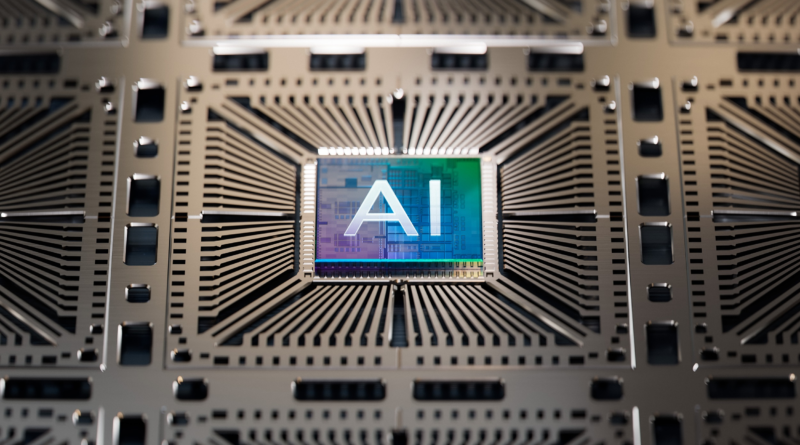Why Taiwan Semiconductor, Intel, and Other Artificial Intelligence (AI) Stocks Rallied on Thursday – The Motley Fool
Founded in 1993, The Motley Fool is a financial services company dedicated to making the world smarter, happier, and richer. The Motley Fool reaches millions of people every month through our premium investing solutions, free guidance and market analysis on Fool.com, top-rated podcasts, and non-profit The Motley Fool Foundation.
Founded in 1993, The Motley Fool is a financial services company dedicated to making the world smarter, happier, and richer. The Motley Fool reaches millions of people every month through our premium investing solutions, free guidance and market analysis on Fool.com, top-rated podcasts, and non-profit The Motley Fool Foundation.
You’re reading a free article with opinions that may differ from The Motley Fool’s Premium Investing Services. Become a Motley Fool member today to get instant access to our top analyst recommendations, in-depth research, investing resources, and more. Learn More
Better-than-expected results from a rival shined a spotlight on the AI space today.
A phenomenon that’s increasingly prevalent with artificial intelligence (AI) stocks is the investor practice of viewing them all through the same lens. For example, when one company in the AI space reports strong financial results, other stocks in the space get a lift as investors expect a rising tide to lift all boats.
That appeared to be the case today, as foundry Taiwan Semiconductor Manufacturing (TSM 0.82%) jumped 3.3%, semiconductor giant Intel (INTC 2.53%) rallied 2.3%, and database specialist Oracle (ORCL 0.31%) climbed 1.6% as of 12:45 p.m. ET on Thursday.
A check of all the usual suspects — regulatory filings, financial reports, and changes to analysts’ price targets — didn’t reveal much in the way of company-specific news driving the results (more on that in a bit). This suggests that investors were reacting to the financial results of another beneficiary of the AI revolution, and they liked what they saw.
Image source: Getty Images.
Micron Technology (MU -3.81%) released the results of its fiscal 2024 second quarter (ended Feb. 29) on Wednesday, and investors were clearly impressed. The computer memory specialist generated revenue of $5.8 billion, an increase of 23% year over year, resulting in adjusted earnings per share (EPS) of $0.42, much improved from a loss of $1.91 in the prior-year quarter. Driving the results was surging demand for high-bandwidth memory, which helped boost Micron’s profit margins.
The results blew past Wall Street’s most bullish expectations, as analysts’ consensus estimates were calling for revenue of $5.35 billion and adjusted EPS of $0.24.
If the robust results weren’t enough to drive the stock higher, Micron’s forecast was eye-opening and caught investors off guard. For the third quarter, management is guiding for revenue of $6.6 billion, which would represent growth of 76% year over year, driving adjusted EPS to $0.45, both at the midpoint.
Management cited strong AI server demand in driving growth for its DRAM memory and NAND flash-based storage.
Investors clearly view these developments as positive for a broad cross-section of companies in the AI space.
While a good many AI stocks were climbing on Thursday, there was some company-specific news for two of companies in our trio.
KeyBanc analyst Jackson Ader initiated coverage on Oracle, assigning an overweight (buy) rating and a $150 price target. This represents potential upside for investors of 16% compared to Wednesday’s closing price. He cited Oracle’s recent results, saying he expects its cloud growth to remain above 50% in 2024 and 2025. He further believes Oracle can “build a legitimate fourth” cloud infrastructure provider in the U.S., a space that is currently dominated by Amazon Web Services (AWS), Alphabet‘s Google Cloud, and Microsoft Azure.
Intel is likely still riding the wave of optimism from yesterday’s announcement that it had been awarded $8.5 billion in direct funding under the CHIPS and Science Act to build leading-edge chip factories in the U.S.
These developments suggest that the accelerating adoption of AI continues to increase the fortunes of companies in the space. But investors should take care not to assume all AI stocks are created equal, but rather ensure the companies they invest in continue to execute on the opportunity represented by AI.
In terms of valuations, Intel, Oracle, and Taiwan Semiconductor are all relatively inexpensive, selling for 32 times, 24 times, and 23 times forward earnings, making each one a buy for investors with a long-term outlook.
Each of these stocks has intriguing potential, particularly when viewed in terms of the opportunity represented by AI.
John Mackey, former CEO of Whole Foods Market, an Amazon subsidiary, is a member of The Motley Fool’s board of directors. Suzanne Frey, an executive at Alphabet, is a member of The Motley Fool’s board of directors. Danny Vena has positions in Alphabet, Amazon, and Microsoft. The Motley Fool has positions in and recommends Alphabet, Amazon, Microsoft, Oracle, and Taiwan Semiconductor Manufacturing. The Motley Fool recommends Intel and recommends the following options: long January 2023 $57.50 calls on Intel, long January 2025 $45 calls on Intel, long January 2026 $395 calls on Microsoft, short January 2026 $405 calls on Microsoft, and short May 2024 $47 calls on Intel. The Motley Fool has a disclosure policy.
Invest better with The Motley Fool. Get stock recommendations, portfolio guidance, and more from The Motley Fool’s premium services.
Making the world smarter, happier, and richer.
© 1995 – 2024 The Motley Fool. All rights reserved.
Market data powered by Xignite and Polygon.io.
